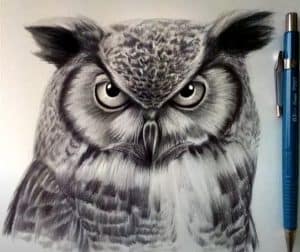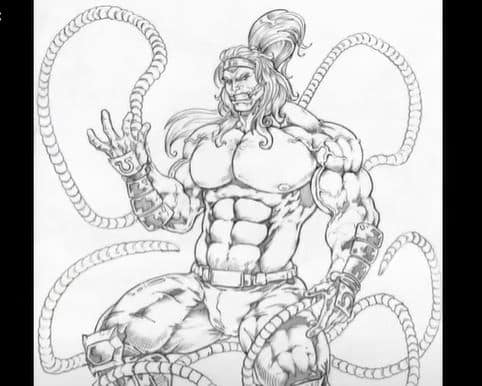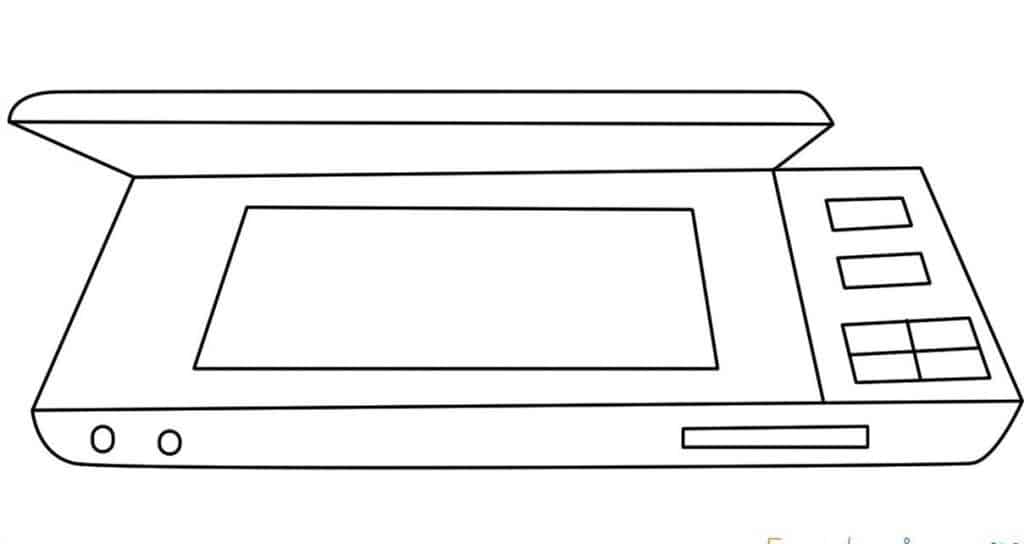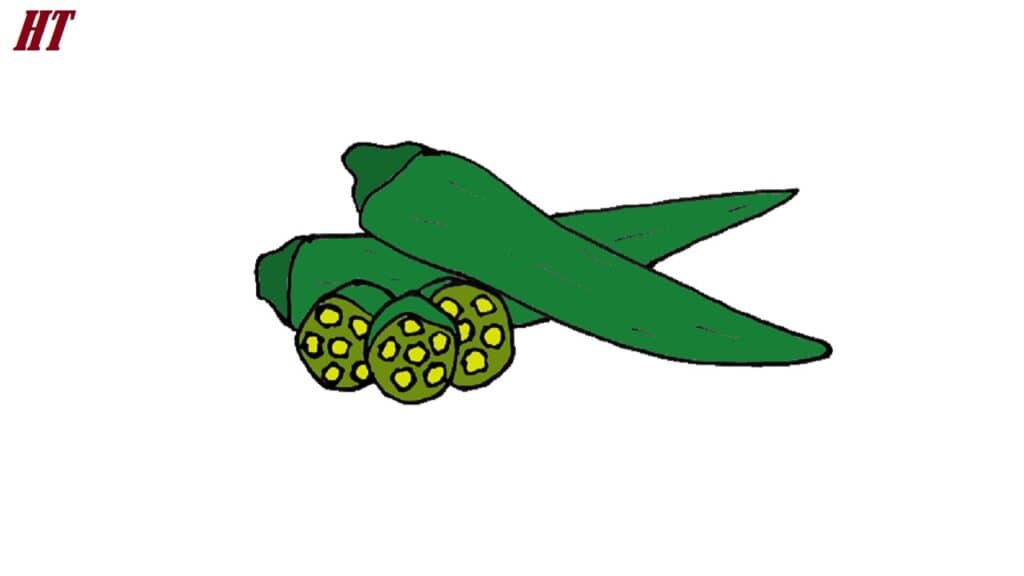How to Draw an Owl Face Easy with this how-to video and step-by-step drawing instructions. Bird drawing tutorial for beginners and everyone.

Please see the drawing tutorial in the video below
You can refer to the simple step-by-step drawing guide below
Step 1 – Draw the Construction Line for the Owl’s Head
Draw some guide / construction lines to help you set up the basic shape and main proportions of the owl’s head. The first thing you want to draw is a vertical line. This line will help you define the midpoint of the drawing area and make sure that both the face / head halves have a fairly uniform width. Next, draw the head’s outer shape, followed by two angled lines that will create the “horns” (a horned owl) and the “eyebrows”. Finally draw the shape of the face which in this case is basically a trio of curves.
Step 2 – Draw the basic shapes of the head
Based on the instructions in the previous step, draw different features of the owl’s head and face such as eyes, beak, “horns” and different types of the face as well as the smaller curves of the head contour. its. Keep in mind that the owl’s eyes are basically round, but the top of them will be slightly covered by the hair.
Step 3 – Draw clean lines
Erase the construction lines, fill the dark areas of the eyes (leave the highlights white) and add some little hints about the different feather layers.
Step 4 – Start shading
Start shading by adding strokes along the shape of the owl’s head / face. You can use a directional stroke or a slight diagonal stroke if appropriate (in this case, the top of the head). Leave the brighter areas of the hair above the eyes, around the beak and along the neck white (for this step).
Step 5 – Refine shadows
Add some diagonal strokes around the eye area and darken some areas to create individual feathers along the top and bottom of the head. Owls of this type also tend to have a sort of dark outline around the edges of their faces so darkens as well. Draw darker feathers around the neck area (between the two light bristles) using shorter, darker strokes on their base and lighter toward the outer ends.
Step 6 – Complete the drawing
Complete the shading by adding more overlapping strokes to reinforce the darker areas of the owl. Makes the bristles more defined but doesn’t completely blend the lines. Visible lines will give the owl a feather-like texture, making it look more realistic. In the end, add some lighter strokes (curled in slightly different directions) to the white areas of the owl’s fur to create a sort of “fluff” effect.


